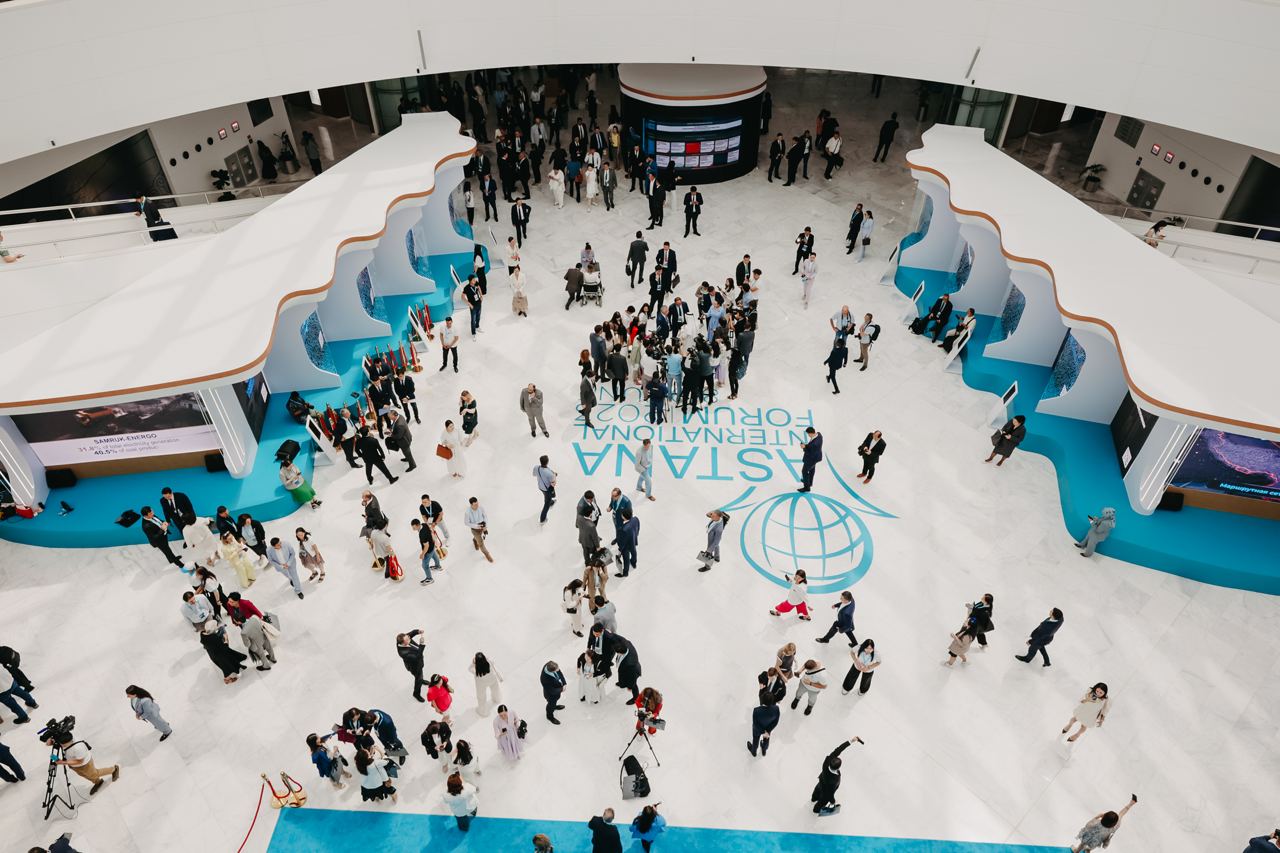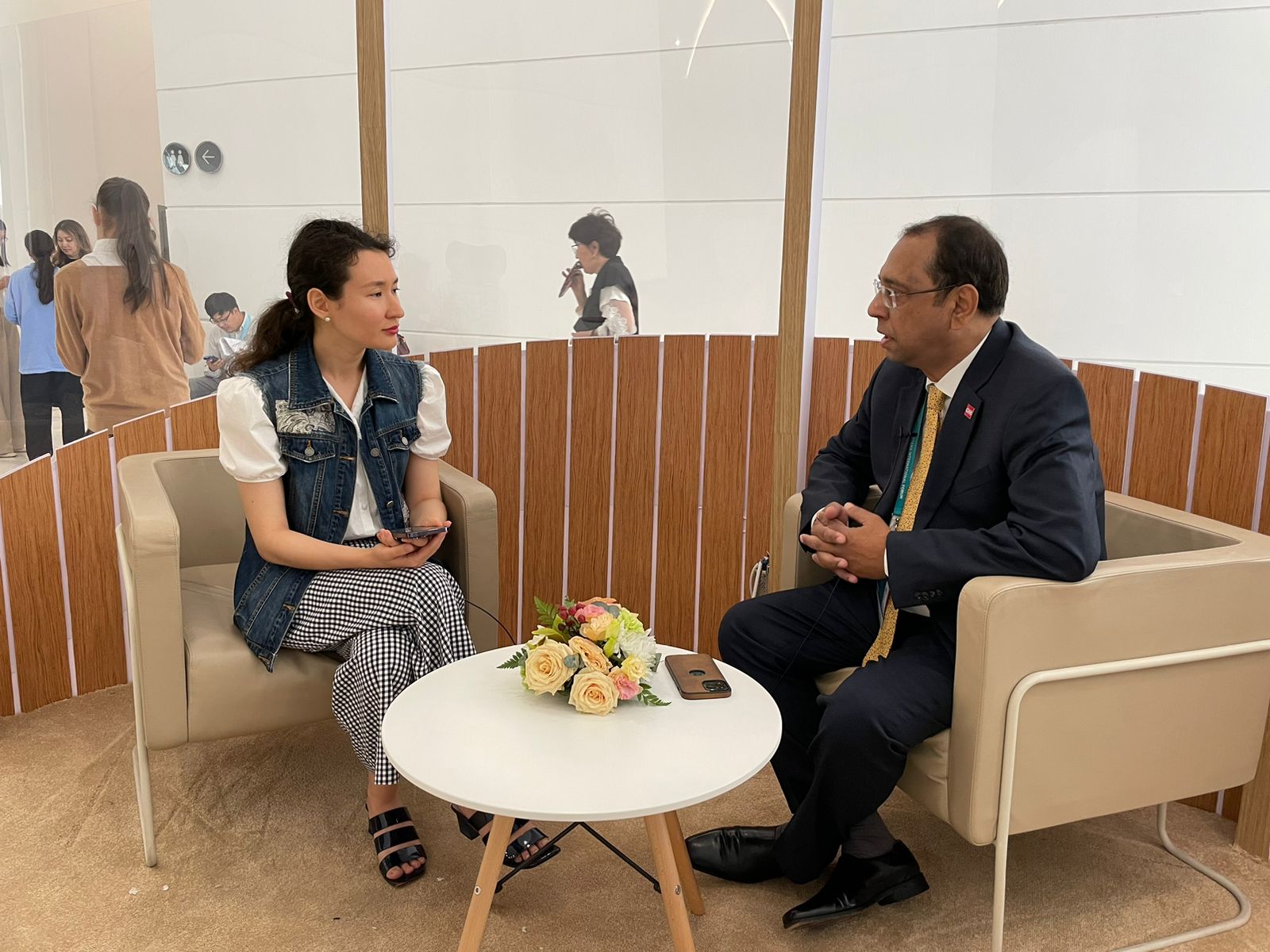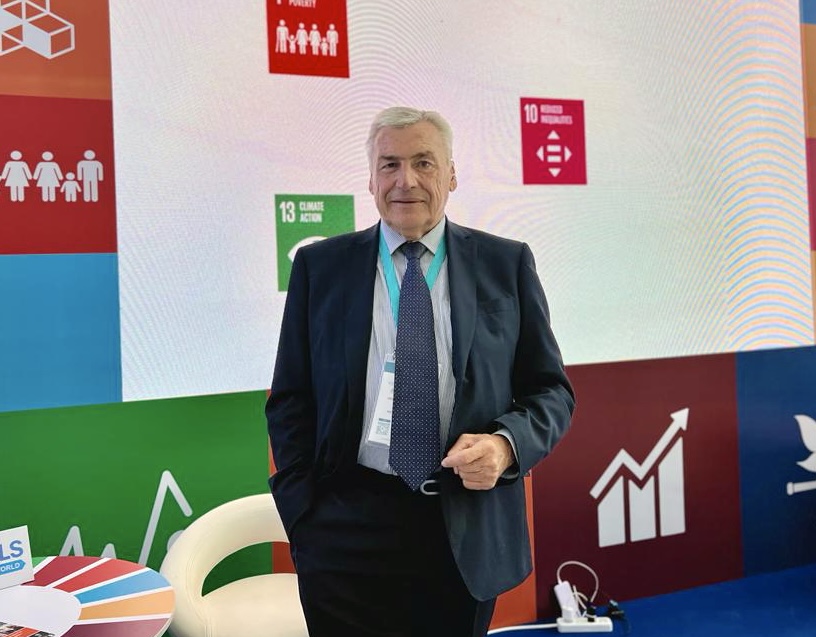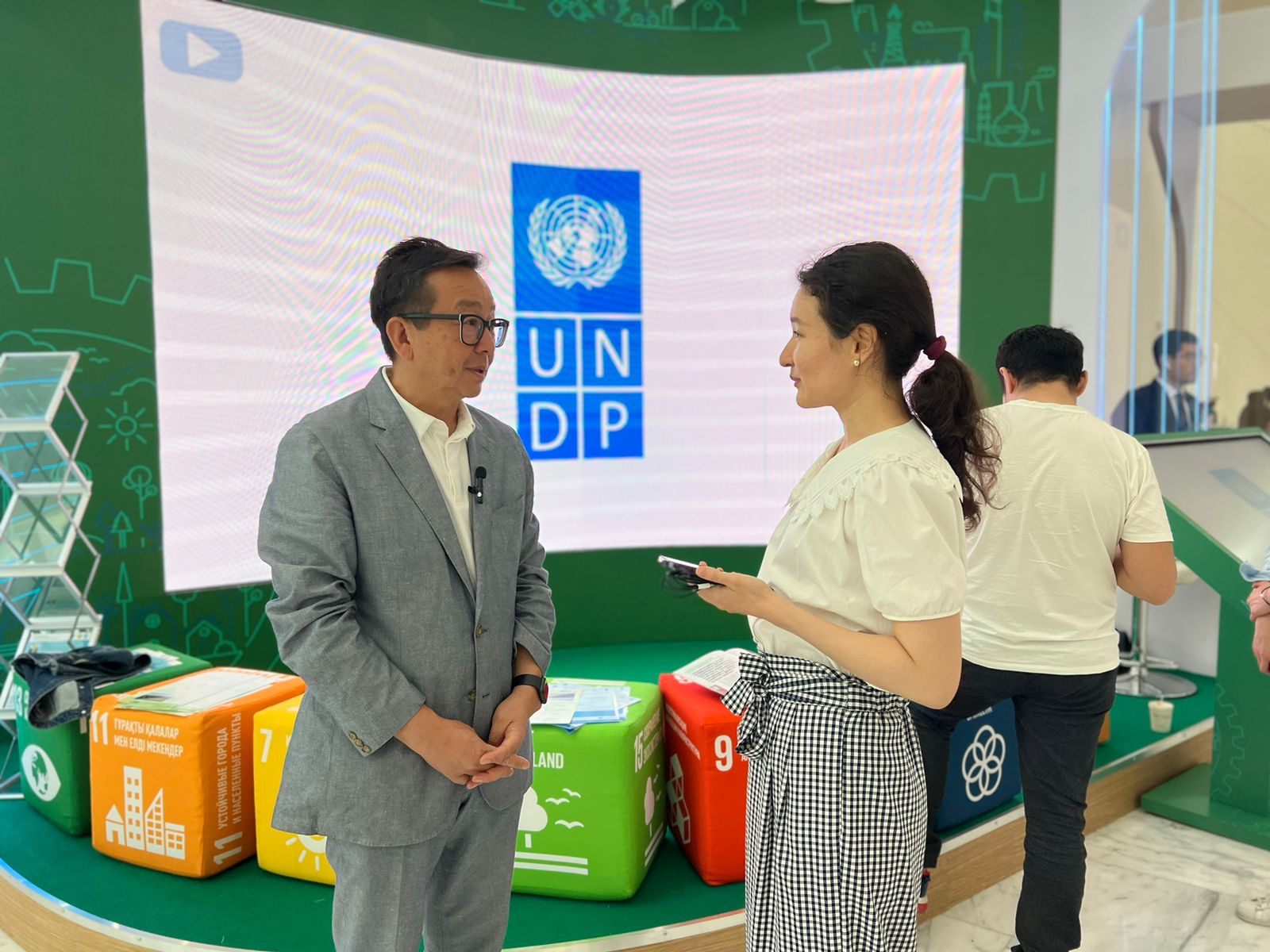ASTANA – The Astana International Forum made a valuable contribution to addressing today’s most pressing issues, offering a broad spectrum of topics for discussion, including environment, energy security, and healthcare, said experts attending the forum in Astana on June 8-9. The Astana Times spoke to several experts to gather their insights of the forum.

The Astana International Forum gathered leading experts from various fields to exchange ideas on how to resolve critical challenges related to climate change, energy security and geopolitics. Photo credit: AIF press service
The two-day forum gathered heads of state, business executives and industry leaders to tackle the key challenges that require international cooperation.
Imran Ahmad, CNN Regional Representative for Central Asia and Africa, who has previously participated in other forums in Kazakhstan, said he was impressed by the issues brought forward in the latest forum, particularly in President Kassym-Jomart Tokayev’s speech at the plenary session.

Imran Ahmad (R) shared his impressions from the AIF with The Astana Times correspondent Aibarshyn Akhmetkali (L). Photo credit: Nargiz Raimbekova/The Astana Times
“The presentation he made was really interesting, especially his focus on the environmental issues which Central Asia and the world would be facing in the next 15-20 years. The fact that President Tokayev is taking the initiative of highlighting these important events is something which is very good,” said Ahmad.
“All the world leaders should focus on these issues. It’s the future, our next generation that is being impacted by those things. So we need to take care of it. And the Astana International Forum is an ideal platform to highlight these issues,” he added.
He also shared his impression of the panel session he attended during the AIF, which focused on the environment and included the CEO of TotalEnergies, a French energy company.
“I found it to be very interesting and enlightening to know how large oil companies are supporting and investing in alternative energy sources,” said Ahmad.
In addition to the AIF, Kazakhstan has continuously hosted high-level international gatherings to facilitate dialogue, such as the Astana Process talks on Syria and the Congress of Leaders of World and Traditional Religions, among others.
“I think it’s a very good beginning. By getting involved and trying to play the role of a negotiator, Kazakhstan is filling a very important gap and, evidently, the international community welcomes this. It’s a slow process, but Kazakhstan’s role as a bridge builder between warring countries is being accepted,” said Ahmad.
“The Congress of Leaders of World and Traditional Religions is a very important multi-faith event that brings closer followers of different faiths and I think that’s a very important issue in our diversified world where tolerance is disappearing. We need more governments to get involved in these kinds of events and discussions, where people of different beliefs get together,” he added.
“I was very impressed by the farsighted approach when the President mentioned organizing a conference on climate change and how it is affecting the region, including the Aral Sea. I’m really looking forward to 2026 when Kazakhstan will host a major conference on this issue,” said Ahmad.
In his opening speech, President Tokayev proposed to hold a Regional Climate Summit in Kazakhstan in 2026 under the auspices of the United Nations (UN) and other international organizations to facilitate dialogue and find solutions to climate change.
“These are the issues which require combined efforts from the governments, the larger international organizations, commercial organizations, energy companies – they all need to sit down, put their heads together and see how we can improve the situation for our coming generations. We only have one planet, and if we don’t take care of it, what will be our heritage for our future generations? So, we need to tackle these problems,” said Ahmad.
His remarks were echoed by Jean de Ruyt, political analyst and former Belgian ambassador to the UN and the European Union.

Jean de Ruyt welcomed the forum’s decision to broaden its scope from economics to encompass other global issues. Photo credit: Aida Dosbergenova/The Astana Times
“I think it was a good idea not to make it an economic forum anymore. [The Astana International Forum grew out of the Astana Economic Forum that had been held until 2019.] I think that was the case in the past, to promote Kazakhstan as a place for investment, which it should still be. But with the geopolitical context of today, I think you cannot just discuss investment and economics. You have to discuss political issues,” he said.
Kazakhstan’s geopolitical location in Central Asia may also have contributed to the forum’s acclaim, he suggested.
“I think this forum caught the attention because people have been used to world forums where we bring together not only people addressing business issues, but also geopolitics and other relevant issues. But to have this in Central Asia, in a country like Kazakhstan, in the current circumstances, with the world’s attention concentrated on the region, on Russia, on the war in Ukraine – I think this is an exceptional opportunity,” said de Ruyt.
Challenges emerging from climate change and the energy crisis were also important topics to cover, according to the expert.
“I was very impressed by the emphasis on climate change, which seems to be a major focus of the forum. It deals not only with political and economic issues, but also with topics which are important for the world,” he said.
Almaz Sharman, physician, scientist and the president of the Academy of Preventive Medicine of Kazakhstan and the National Center for Nutrition, was a keynote speaker at the AIF’s panel on global health preparedness.

According to Almaz Sharman (L), the forum might help raise awareness on public health. Photo credit: Aida Dosbergenova/The Astana Times
“This forum goes far beyond the economy, covering a lot of other challenges in the modern world, including wars, migration issues, global warming, and lots of other issues. But for me, as a physician, I’m very interested in the part about healthcare,” said Sharman.
“We all went through a very difficult pandemic and although most countries have declared that it is over, there are still some risks and threats that may arise in the future related to different viruses, such as coronavirus and the influenza virus,” he added.
Beyond the response to the new challenges, Sharman spoke about the importance of addressing non-communicable diseases, as well as learning lessons from the COVID-19 pandemic.
“I just wanted to point out that about 80% of individuals who died of COVID-19 had various chronic non-communicable diseases, such as diabetes, obesity, hypertension, heart failure, and so on. And it is important to address those issues now to make sure that people across the world, especially elderly people, are better prepared for the challenges of a pandemic, to make sure that it will be less risky and there will be less mortality,” he said.
At a time when much of the world is going through a post-pandemic recovery that is yet to fully end, the AIF is an important opportunity to take a long-term perspective on healthcare issues, said Sharman.
“The forum helps raise awareness of public health. Yesterday we met with representatives of the World Health Organization, Centers for Disease Control and Prevention, and with a representative of international migration. They are aware of this situation and, hopefully, they will spread this information,” said Sharman.
“Forums like the AIF, which covers issues far beyond the economy and recognizes the importance of healthcare and the overall well-being of the countries, can make an impact. As an outcome of this conference, I think we expect that more funding will be allocated by countries to public health and to research in the field of virology and epidemiology. I think political support that can be generated from a conference like this will be very important,” he concluded.

